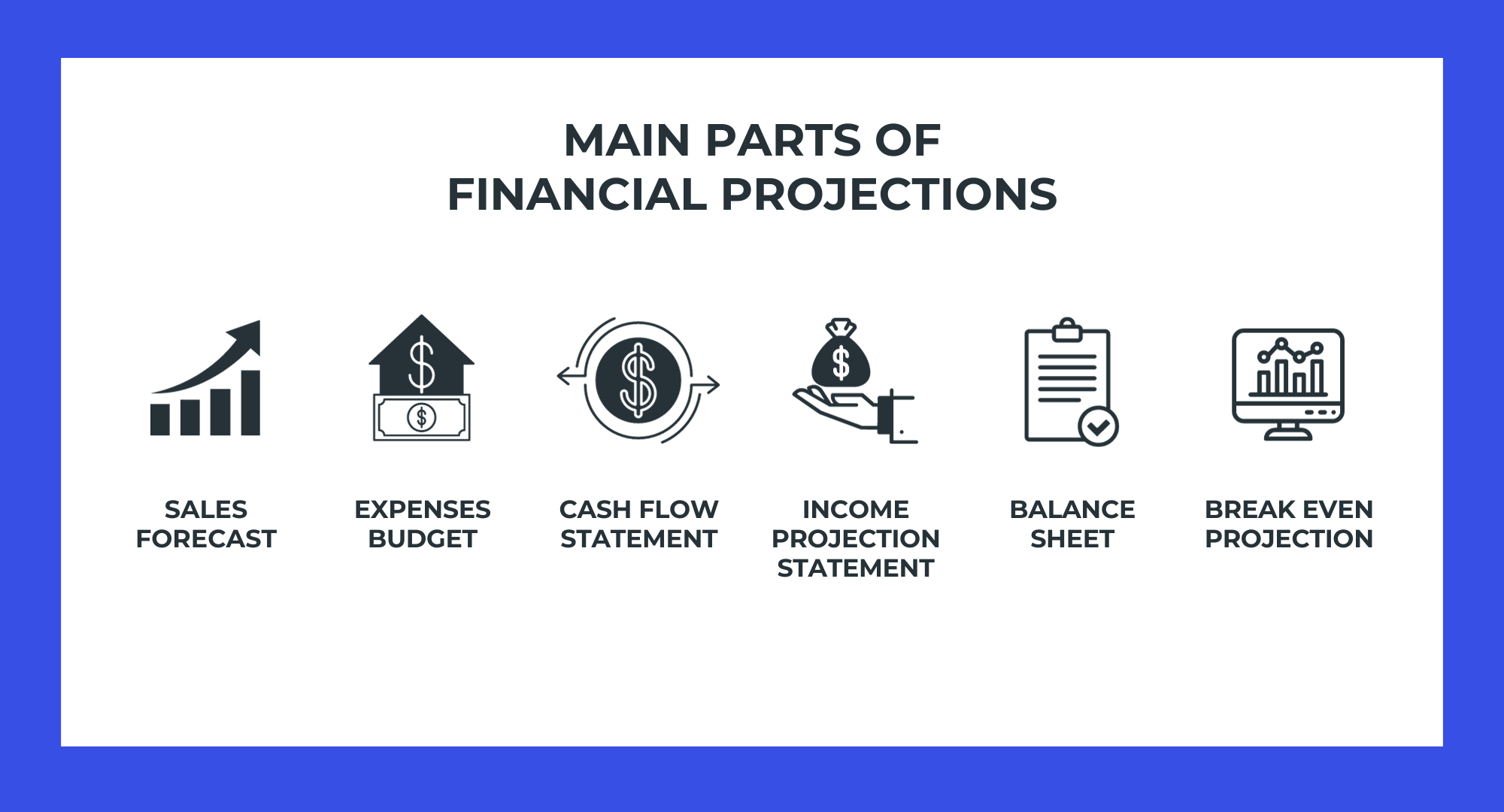![]()
Financial Projections
When Making Financial Projections, Why Must a Business Owner Consider Economic Conditions?
Introduction
Financial projections are critical for any business, whether it is a startup, small business, or large enterprise. These projections help in planning budgets, securing investments, and making strategic decisions. However, one key factor that business owners must consider when making financial projections is the broader economic conditions. Economic factors such as inflation, interest rates, unemployment, and market trends can significantly impact revenue, expenses, and overall business sustainability. Understanding these conditions allows business owners to create more realistic and adaptable financial plans.
Definition of Economic Conditions in Financial Projections
Economic conditions refer to the overall state of the economy at a given time, influenced by various macroeconomic indicators such as GDP growth, inflation rates, interest rates, consumer confidence, and employment levels. These factors collectively shape the business environment, affecting demand, supply, and profitability. When business owners account for these conditions, they can create financial projections that reflect potential economic shifts and avoid unrealistic expectations.
Application of Economic Conditions in Financial Projections
- Revenue Forecasting – Economic conditions influence consumer spending behavior, which directly affects sales and revenue projections.
- Cost Estimations – Inflation and supply chain disruptions can impact raw material costs, labor expenses, and overheads.
- Investment Decisions – Interest rates determine the cost of borrowing and capital expenditure feasibility.
- Risk Management – Anticipating economic downturns helps in strategizing contingency plans and avoiding financial instability.
- Pricing Strategies – Inflation and competition influence pricing models and profitability margins.
Benefits of Considering Economic Conditions in Financial Projections
- Improved Accuracy – Aligning projections with economic trends results in realistic financial estimates.
- Better Risk Mitigation – Awareness of potential economic downturns helps in preparing contingency plans.
- Enhanced Investor Confidence – Investors and lenders are more likely to support businesses with well-researched financial projections.
- Effective Budgeting – Helps businesses allocate resources more efficiently based on expected economic trends.
- Long-Term Sustainability – Ensures that businesses can adapt to economic shifts and remain profitable.
Limitations of Considering Economic Conditions in Financial Projections
- Uncertainty in Predictions – Economic conditions can change unpredictably due to unforeseen events such as political instability or natural disasters.
- Complexity in Analysis – Understanding and integrating multiple economic indicators can be challenging for small business owners.
- Variability in Industry Impact – Some industries are more affected by economic shifts than others, making generalized projections difficult.
- Overreliance on Economic Trends – Excessive focus on economic conditions might lead to overlooking internal business strengths and opportunities.
Comparative Table: Considering vs. Ignoring Economic Conditions in Financial Projections
| Aspect | Considering Economic Conditions | Ignoring Economic Conditions |
|---|---|---|
| Accuracy of Projections | High – Based on real-world trends | Low – Assumptions may be unrealistic |
| Risk Management | Strong – Allows proactive planning | Weak – May result in unexpected losses |
| Investor Confidence | High – Demonstrates thorough research | Low – Lacks credibility |
| Business Sustainability | High – Adaptable to economic changes | Low – Vulnerable to market fluctuations |
| Strategic Decision-Making | Informed – Backed by data and trends | Blind – Based on internal estimations only |
Conclusion
Incorporating economic conditions into financial projections is essential for any business owner looking to create accurate, reliable, and sustainable financial plans. By analyzing factors such as inflation, interest rates, consumer spending, and employment trends, businesses can make well-informed decisions that enhance growth and mitigate risks. While economic forecasting has its limitations, its benefits far outweigh the drawbacks, making it a crucial element in strategic financial planning. Businesses that integrate economic insights into their financial projections are better equipped to navigate uncertainties and achieve long-term success.
For more information visit this site: https://www.incometax.gov.in
FAQs
1.Why should economic conditions be considered in financial projections?
- Economic conditions impact consumer spending, interest rates, inflation, and business costs, which affect revenue and profitability.
2. How do economic conditions affect revenue projections?
- In a strong economy, consumers spend more, boosting sales, while a weak economy may reduce spending, leading to lower revenues.
3. What role does inflation play in financial projections?
- Inflation increases the cost of goods and services, which can impact profit margins if not accounted for in projections.
4. How do interest rates influence financial planning?
- Rising interest rates increase borrowing costs, while lower rates make financing cheaper, affecting the cost of capital and investment plans.
5. Why is consumer confidence important in financial projections?
- Consumer confidence reflects people’s willingness to spend. High confidence means higher demand, while low confidence may decrease sales.
6. How do global economic conditions affect business projections?
- Global conditions, like trade policies or currency fluctuations, can influence import/export costs and affect a business’s competitiveness.
7. How do unemployment rates impact financial projections?
- Higher unemployment can reduce consumer purchasing power, affecting sales, while lower unemployment might increase labor costs due to wage competition.
8. Why should a business owner consider market demand in economic forecasting?
- Economic downturns may decrease market demand for certain products or services, which can lead to overestimating future revenue.
9. What is the impact of economic growth on a business’s financial projections?
- Strong economic growth can lead to business expansion and higher revenues, while stagnation or recession can limit growth opportunities.
10. How do government policies impact financial projections?
- Changes in taxes, regulations, and government spending can alter business costs, consumer behavior, and overall market conditions, impacting forecasts.
For further details access our website https://vibrantfinserv.com